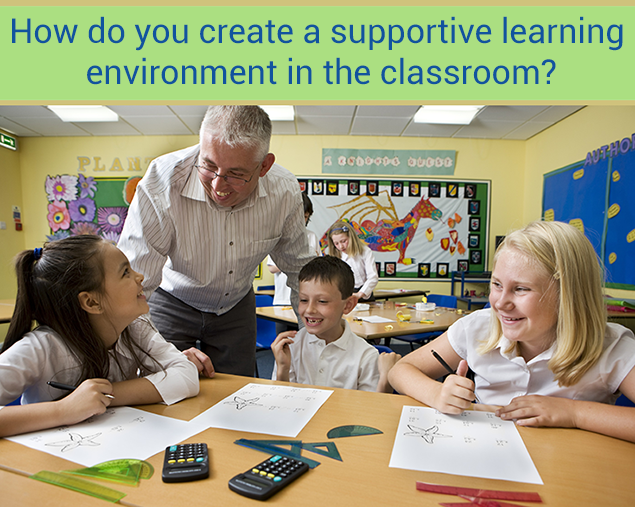How Can Teachers Incorporate Encouragement InTo The Classroom?
Posted by Network Support · Leave a Comment
As educators, you have the most unique relationship with students, and thus your interaction with them is just as important as the content you teach…
It’s surprising that many teachers never ask their students what they want, need and expect to gain from the class. Asking these simple things shows that you actually care about and listen to your students.
Students thrive and grow when teachers believe in their capabilities. Thus, as an essential part of the curriculum, teachers should look for ways to spend each day asking, encouraging and motivating students. Dr. Lori Desautels, Assistant Professor in the School of Education at Marian University, suggests three simple rules that get to the heart of what students (really) want to hear from their teachers:
- I believe in you
- You have a purpose
- How are you?
1. Believe In Them
“I believe in you. You are going to make it big someday! Nothing can hold you back!”
By believing in students, an educator gives them the motivation to learn all the time and to take a step forward to the future. There is no one, aside from a student’s parent, better suited for the task of helping students believe in themselves more than their teacher. As a teacher, you have the power to impact your students’ future success, and by extension, you have the ability to influence for the better, the society as a whole.
2. Fostering Passion & Purpose
“You have a purpose. I see it! Let’s discover what it is.”
How do teachers help a student find his or her purpose? Begin with an affirmation: “You have a purpose!” If you help a student find their purpose in life, everything else around them, their entire education and even their extracurricular activities, will be seen through the prism of that overriding purpose in life.
Many students don’t even recognize that they have a purpose in life, and it is therefore the teacher’s role to inspire the student, to recognize that they have a purpose and something unique to contribute to the world. Teachers should also help the student dig deep within their own psyche in order to gain the self-insight they will need to make long-term decisions that will affect the rest of their life.
3. Asking effective questions
“How are you? Do you need something?”
It is most important that a teacher makes an effort to build strong emotional links with students – talk to their hearts, empathize; talk with them about their lives, their expectations. Connecting with students on a personal level can go a long way in instilling confidence among them and fostering a positive learning environment.
Like this article for teachers?
Browse the Professional Learning Board COURSE CATALOG to find related online courses for teachers in your state. Professional Learning Board is a leading provider of online professional development classes that teachers use to renew a teaching license or renew a teaching certificate.





